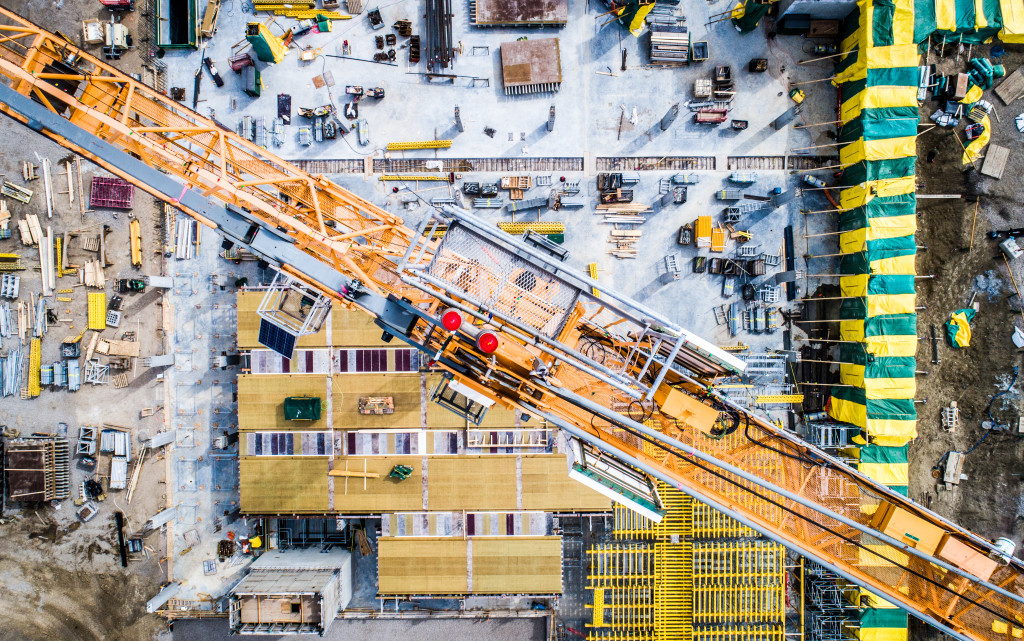- The construction industry faces significant challenges, including project mismanagement, fragmentation, and high risks.
- Common issues in construction project management encompass poor communication, inadequate planning, and ineffective resource and risk management.
- Lack of contingency planning and equipment problems also hinder project success.
- Improvement strategies include clear communication, meticulous planning, efficient resource usage, comprehensive risk management, and contingency planning.
- Regular equipment inspection and maintenance, particularly of the power train components, can prevent delays and ensure project completion within budget.
Construction projects can be incredibly complex, and with so many moving parts, it’s not uncommon for things to go wrong. Unfortunately, when things do go wrong, they can be costly in terms of time and money. Project management is critical to ensuring that construction projects are completed on time, within budget, and to the highest standard. However, even the best project managers can fall short. Here’s what you need to know about the industry, how your construction projects are mismanaged, and how to fix it.
The Construction Industry Today
It’s estimated that there are four million construction firms in the U.S. today and that the industry is responsible for over 10% of the country’s GDP. Yet despite its size and importance, it’s also one of the most fragmented industries in the world, with smaller companies accounting for most firms. This fragmentation can lead to challenges in project management, as communication and coordination between various parties can be difficult.
Another factor contributing to potential mismanagement in the industry is the high level of risk involved. With complex projects and tight deadlines, there are countless opportunities for problems to arise. From dealing with unexpected weather conditions to supply chain disruptions, even the most well-planned project can quickly spiral out of control.
Common Issues in Construction Project Management
There are many issues covering construction project management. Here are some of them:
1. Poor Communication
Clear, concise communication is a cornerstone of effective project management. Communication breakdowns can lead to misunderstandings, errors, and delays, seriously impacting your project. Poor communication can happen in many ways, such as failing to provide clear instructions or updates, not listening to stakeholder feedback, or not responding to queries promptly.

2. Inadequate Planning
Planning is an integral part of construction management. Without adequate planning, projects can quickly become disorganized and inefficient. Project managers who think on their feet and try to wing it are setting themselves up for failure. It is essential to have a detailed project plan that outlines milestones, timelines, and budgets. The plan should be reviewed regularly and updated as needed.
3. Poor Resource Management
Efficient resource management is key to successful project management. Resources can be anything from labor and materials to financial assets. Project managers unable to manage their resources effectively may experience delays, quality issues, or cost overruns. It’s important to understand resource requirements from the outset clearly and have processes in place to ensure that resources are allocated and managed effectively throughout the project.
4. Inadequate Risk Management
Construction projects can be risky, and project managers who fail to manage risk appropriately can find themselves in hot water. Inadequate risk management can lead to accidents, injuries, and significant financial losses. Risk management involves identifying potential risks, assessing their likelihood and impact, and implementing mitigating controls. Project managers should have a risk management plan to manage these risks effectively.
5. Lack of Contingency Planning
Construction projects can be unpredictable, and project managers who fail to plan for contingencies may find themselves in trouble. Many scenarios might arise during a construction project that causes delays, such as bad weather or unexpected design changes. A lack of contingency planning, such as equipment or backup resources, can lead to delays and added costs. Project managers should have contingency plans to anticipate these potential roadblocks and have backup solutions ready.
6. Equipment Problems
Lastly, equipment problems can also cause delays and issues in construction projects. Construction projects require various machinery, tools, and equipment to be completed successfully. Certain parts of heavy equipment, such as excavators, must be replaced. For example, the power train of an excavator is one of its most critical components, and if not functioning correctly, it can bring a project to a halt. Project managers should replace it with a reliable power train whenever the previous one breaks. The budget should also cover this over time.

How to Improve Construction Project Management
To improve construction project management and avoid these common issues, there are several steps that project managers can take:
- Ensure clear and effective communication between all parties involved in the project.
- Create a detailed and realistic project plan that is regularly reviewed and updated.
- Manage resources efficiently, including labor, materials, and finances.
- Implement a thorough risk management plan to identify, assess, and mitigate potential risks.
- Develop contingency plans for unexpected events or challenges during the project.
- Regularly inspect and maintain equipment to prevent any issues from arising.
By implementing these steps, project managers can better manage their construction projects, reduce the chances of mismanagement, and ensure successful project completion. With a well-managed project, you can avoid costly delays and finish your projects on time and within budget. Overall, it’s essential to prioritize effective project management in the construction industry to keep projects running smoothly and efficiently.
